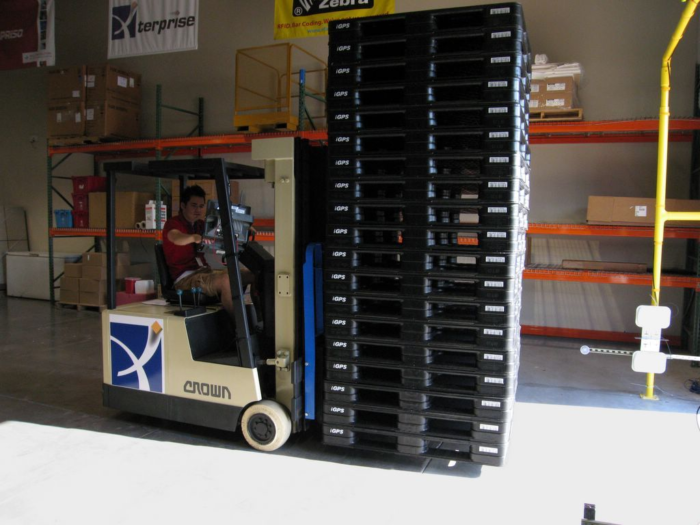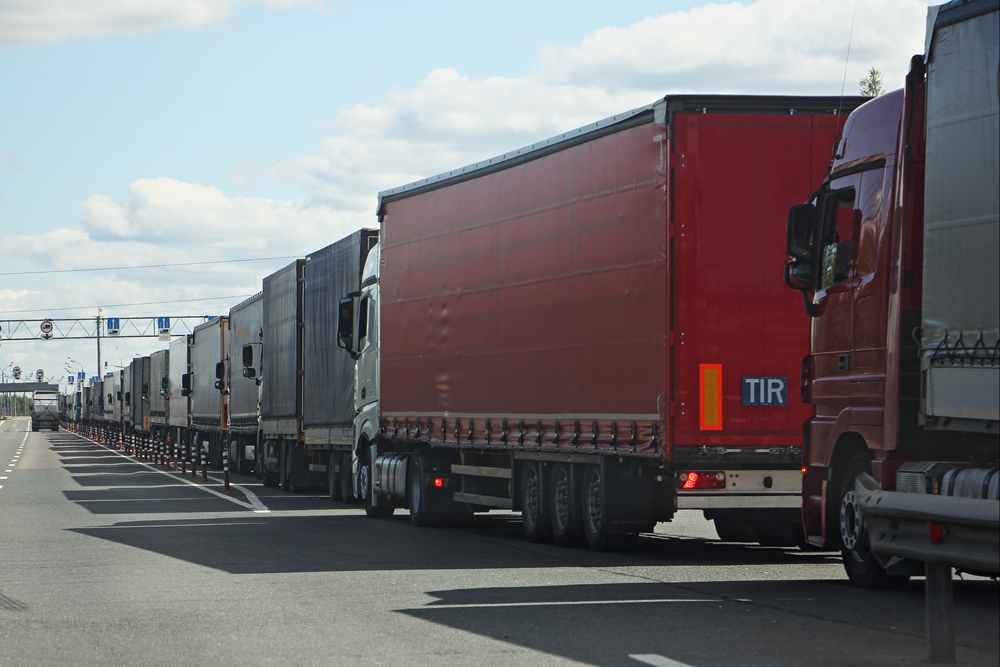Empty miles, a term that describes cargo vehicles traveling without a load of products that can be sold for a profit, have bedeviled merchants since the earliest days of trade. In the Age of Discovery, merchants would occasionally arrange stopovers at different continents to pick up cargos that could be sold for a profit. In modern times, empty legs are still a costly problem, with trucks crossing continents without a load except empty pallets being returned to their owner. In these cases, the only return on the cost of the truck driver’s wages and fuel is not having to purchase replacement pallets. In essence, it involves paying money to avoid a loss rather than make a profit.
Avoiding empty miles is an important goal for everyone in the supply chain. Independent operators, transportation companies, and the retailers and manufacturers they serve all lose money on dead leg trips. Frequently, they compete in order to ensure a different company ends up stuck with the cost. However, cooperation and the right shipping platform can help ensure supply chain vendors profit by reducing empty miles and making the most of each trip a freight truck makes.
Reducing Empty Miles with Pooled Pallets
 Shipping pallets are standardized platforms that turn any product into a load that is easily lifted and transported by forklift. Products must simply be stacked and anchored to the pallet and they become modular. Pallets enable the easy loading and unloading of large volumes of products from trucks, trains, and shipping containers. They form the backbone of the modern supply chain, and have done so since shortly after the Second World War.
Shipping pallets are standardized platforms that turn any product into a load that is easily lifted and transported by forklift. Products must simply be stacked and anchored to the pallet and they become modular. Pallets enable the easy loading and unloading of large volumes of products from trucks, trains, and shipping containers. They form the backbone of the modern supply chain, and have done so since shortly after the Second World War.
Transporting a load of pallets is essentially an empty leg that doesn’t net a company a profit.
However, the moment they complete their journey by delivering products to their final destination, pallets become a burden. If they are to be used again, they must either be stored or transported elsewhere. Neither of these options is easy or cost effective. Idle pallets take up both floor space and volume in warehouses that could be used to store sellable products. Transporting a load of pallets is essentially an empty leg that doesn’t net a company a profit. In other words, empty pallets cost money, and in order to save money, companies frequently struggle to figure out how to dispose of pallets cost-effectively, with most ending up in a landfill. Pallet pooling changes this equation, reducing empty miles and making pallets the responsibility of the pallet pooling company.
 A pallet pooling provider rents their pallets to companies to ship their products on. All of the businesses renting these pallets are part of a pallet pool. When the pallets reach the end of the supply chain, the pallet pooling service arranges to have them transported to nearby companies who need empty pallets to ship their products on. This minimizes the number of deadhead legs that trucks must drive to ensure pallets are reused. Using certain types of pooled pallets can maximize these benefits further.
A pallet pooling provider rents their pallets to companies to ship their products on. All of the businesses renting these pallets are part of a pallet pool. When the pallets reach the end of the supply chain, the pallet pooling service arranges to have them transported to nearby companies who need empty pallets to ship their products on. This minimizes the number of deadhead legs that trucks must drive to ensure pallets are reused. Using certain types of pooled pallets can maximize these benefits further.
How Plastic Pallets Help Improve Supply Chain Efficiency
 Multiple types of pallets exist, and not all of them are suitable for pallet pooling. The most common types of wood pallets are:
Multiple types of pallets exist, and not all of them are suitable for pallet pooling. The most common types of wood pallets are:
- Stringer pallets: Stringer pallets are the most basic type of pallet there is, and they are generally only capable of making three trips before they need repair or disposal. As a result, pallet pooling using stringer pallets is not a cost-effective pallet management strategy.
- Block Pallets: Instead of stringer pallets, most pallet pooling companies use wood block pallets, which replace the stringers in stringer pallets with nine four-by-four-inch wood blocks. Comparing block pallets vs. stringer pallets, it’s clear that block pallets are far stronger: they average 15-20 trips through the supply chain before needing repair or disposal.
However, block pallets have the drawback of weighing significantly more than stringer pallets. Wood block pallets weigh seventy pounds per pallet and may weigh as much as eighty pounds if the moisture content in the pallet is high. This additional weight adds up quickly across a full load shipped on block pallets. It can also be counterproductive and lead to additional trips. Products that “weigh out” are shipped when they hit the maximum weight limit for a truckload. A load of products will hit this limit much sooner when the products are loaded onto hefty wood block pallets. This limits the number of loaded pallets that each truck can carry, and may result in the need to send additional trucks with partial loads to fulfill an order. This means a very real increase in empty miles across two trucks instead of one.
Pooled plastic pallets provide the most efficient means of reducing empty miles for product transportation.
Fortunately, plastic pallets are both stronger and weigh 35 percent less than wood block pallets. A plastic pallet is capable of making around a hundred trips through the supply chain, and can do this at a weight of less than fifty pounds. As a result, when products that weigh out are shipped on plastic pallets, a greater proportion of the weight of each shipment is sellable products—not pallet weight. Alternatively, products that ship by cubing out—when the entire usable volume of a cargo trailer is filled—will save weight and fuel costs for the miles traveled when plastic pallets are used. Pooled plastic pallets therefore provide the most efficient means of reducing empty miles for product transportation.
The iGPS plastic pallet pool rents durable and lightweight plastic pallets that increase your transportation efficiency. Reduce empty miles in your supply chain by giving our team a call at 1-800-884-0225, emailing a specialist at switch@igps.net, or visiting our contact page.



